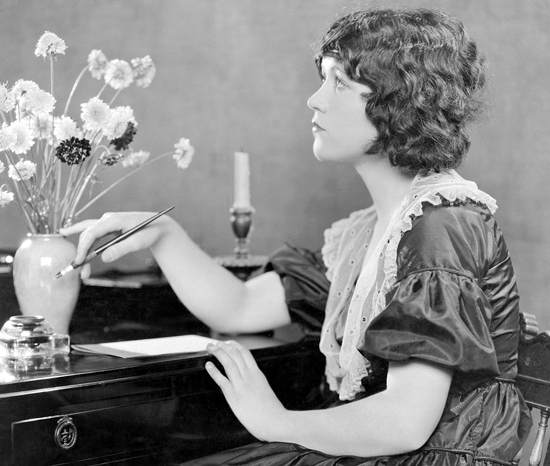—————————————————————————————————
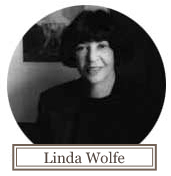 Are you a memoir junkie like we are? Then tuck into these top picks from FOF book reviewer Linda Wolfe. Plus, enter to win them all when you answer this question in the comments below: What’s your favorite memoir of all time?
Are you a memoir junkie like we are? Then tuck into these top picks from FOF book reviewer Linda Wolfe. Plus, enter to win them all when you answer this question in the comments below: What’s your favorite memoir of all time?
Lately there’s been chatter in the publishing circles I inhabit about memoirs being difficult to sell; one editor even told me emphatically, “The age of the memoir is over.” What? Most of the women I know love reading memoirs. They may be harder for publishers and editors to market nowadays, but so too are all kinds of other books, what with bookstores disappearing faster than endangered animals, and self-published books making editors themselves an endangered species. But let’s not pick on the memoir. Those of us who like to read will always be captivated by well-told personal stories of love and loss, divorce and death, the triumph over illness or abusive rearing. So I want to say to my editor friends, keep those memoirs coming!
Here are four fascinating ones I’ve read in recent weeks:
—————————————————————————————————
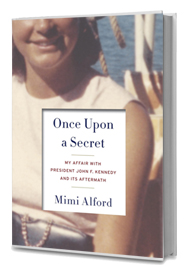 ONCE UPON A SECRET by Mimi Alford. Random House. 198 pages.
ONCE UPON A SECRET by Mimi Alford. Random House. 198 pages.
You probably saw Mrs. Alford on television. She was on every talk show imaginable: a discreetly dressed woman in her sixties, with a soft voice and unprepossessing manner. But back in 1962, still in high school – she attended Miss Porter’s prep school, the same school as Jackie Kennedy – she landed a summer job as a White House intern. On her fourth day at work she was invited to join a small group of the president’s special friends for a lunchtime swim in the White House pool. Kennedy turned up while Alford was swimming, liked what he saw, and invited her for a tour of the residence that evening. It was an evening that would shape – and scar — the entire rest of her life. The preppie Alford was not just sexually inexperienced, she was a virgin. She’d been kissed only once in her life, back in eighth grade, and despite her pretty, Waspy looks, suffered from a severe case of low self-esteem. She’d had no boyfriends throughout highschool, had been anorexic at seventeen, and had always felt anxious and somehow undesirable.
{Click here to read the complete review!}
Alford remained a sexual toy of Kennedy’s until, during her first year of college, she met and became engaged to a boy her own age. Naively believing couples should be completely open with one another, she told her suitor about her affair with the president. He said he still wanted to marry her, but he made the harsh demand that she never say another word about the affair, not to anyone. They married, and Alford kept the secret. But it poisoned her life, making her feel emotionally distant from everyone she knew, and turning the marriage into a punishing and arid relationship. After many years of feeling her secret as a scourge destroying her from within, she did begin telling a few close friends about her relationship with Kennedy. But they kept her secret, too, and she never admitted the affair publicly, even after her marriage ended in divorce. It was widely rumored that Kennedy had had an affair with a young White House intern, but who she went unknown, until historian Robert Dallek unearthed Alford’s identity and revealed it in a 2004 biography of Kennedy. After that exposure, and after finding a new husband who didn’t think her youthful indiscretion shameful, she decided to talk about her long-held secret – hence this book. And in letting go of the secret, she claims to have found at last some modicum of inner peace.
The details of the affair are engrossing and often shocking. And the book has a rare authenticity. It doesn’t sound ghostwritten. Alford’s voice is her own: gentle, modest, and self-revelatory.
When the author was interviewed on TV some of her young interviewers were critical of her for having succumbed to the advances of a much older man. Didn’t she feel abused? Alford’s response was no, that his attentions made her feel important.
I felt the young interviewers just didn’t get it. They’ve grown up in a different time, a time when women feel outraged at the thought of an older and more powerful man attempting to seduce a younger powerless female. And seem to expect said female to feel outraged, too. But Alford’s time was my time, too. And I can assure you that if the charming, handsome and powerful Jack Kennedy had wanted to make love to me, I’d have done just what Alford did. And felt just the way she did.
—————————————————————————————————
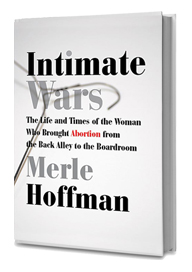 INTIMATE WARS by Merle Hoffman, The Feminist Press. 267 pages,
INTIMATE WARS by Merle Hoffman, The Feminist Press. 267 pages,
How you feel about Intimate Wars will depend entirely on how you feel about a woman’s right to choose whether and when to bear a child. Hoffman is the director of a prominent New York abortion clinic she opened at the age of twenty-five–two years before Roe v. Wade–which she is still running today, forty-one years later. Strong-willed, outspoken and fearless, Hoffman has fought in all the battles over reproductive rights that have tormented our times since the day dangerous, unsanitary and cruel back-alley abortions, were supplanted through U.S. law by safe abortions performed in clean, accountable, professionally-staffed medical clinics. Hoffman has been a hero in these battles, and a crusader in other women’s health issues as well, like the need for affordable mammography for all women. I say hero deservedly; Hoffman has faced down innumerable bomb-threats; opened hate mail that contained deadly powders; and learned to shoot a gun in order to protect not just herself but her many employees from threatened attacks.
{Click here to read the complete review!}
The discovery of the set on which she would make her mark came about accidentally. Needing a job to augment her dilettantish pursuits, she took a part-time position as office assistant to Dr. Martin Gold, a New York physician specializing in family care. In 1971, when abortion was legalized in New York, Gold opened one of the state’s first ambulatory abortion facilities and, feeling that a woman should be its public face, asked Hoffman to run his new clinic. Accepting, Hoffman realized that she was about to be “on the front lines of an exciting, pioneering new era of medicine….longing for a great stage to act upon, I was ready to throw myself into creating a new world. Now was the time– this was my hour.”
Hoffman can be grandiose. But she’s refreshingly open, no secrets this woman; she tells us that she and the married Gold were lovers. She tells us that they remained so for many years, until eventually he divorced his wife and married her. They had no children–he already had some, and she didn’t want any. But long after his death, Hoffman realized, at the age of fifty-eight, that what was missing from her embattled life was a child. A year later she adopted a three-year-old Russian girl, and discovered the intense joys of motherhood.
Has raising a child altered her commitment to providing abortions? Not at all. It has simply strengthened her dedication to helping women experience those joys only when they want and are ready to do so.
—————————————————————————————————
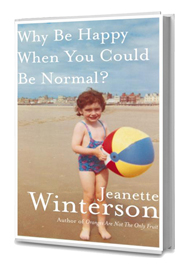 WHY BE HAPPY WHEN YOU COULD BE NORMAL? By Jeanette Winterson, Grove Press. 250 pages.
WHY BE HAPPY WHEN YOU COULD BE NORMAL? By Jeanette Winterson, Grove Press. 250 pages.
Jeanette Winterson’s best-selling 1985 autobiographical novel, Oranges Are Not the Only Fruit, told the story of her adoption as an infant by a fanatical born-again Pentecostal Christian who saw evidences of Satan in the tiny child. Trying to alter her nature and destroy her spirit, her mother, who she refers to as “Mrs. W.”, punishes her for the slightest infraction of rules. She is not just beaten, or sent to bed hungry, but sometimes even locked in the basement coal bin or made to spend the night outdoors on the front stoop. When the pre-teen Winterson falls in love with books, her mother burns them. And when she is a teenager and her mother learns she is attracted to women, she is forced to undergo a cruel and frightening church exorcism. Winterson survived Mrs. W., left home at fifteen, started working, managed against all odds to attend a local college and then Oxford University, and ultimately went on to write Oranges–which has become a classic of lesbian literature–and several other books.
{Click here to read the complete review!}
Winterson has also come to see that the ordeals she endured at her adoptive mother’s hands have played a role in the achievements of her life. Remembering the burning of her books incident, she writes that what the books held “could not be so easily destroyed. What they held was already inside me, and together we would get away.” More, as she regarded the smouldering pile of paper and type, she had an epiphany: “There was something else I could do. ‘Fuck it’, I thought, ‘I can write my own.’”
The author’s undauntable personality manifests itself throughout this powerful book, which culminates in her search for her birth mother. With increasing suspense, she tracks her identity and whereabouts, and ultimately the pair is reunited. Her mother turns out to be a kindly motherly woman, as happy to meet Winterson as Winterson is to meet her. Winterson likes the woman she finally meets. But regretfully, she realizes that the reunion has come too late; she can never be the happier person she might have been had she been raised by her genial birth mother. She is Mrs. W’s creature. And, she speculates, that has made her into the strong, successful woman she is now. Indeed, when her birth mother, learning of her child’s unhappy rearing, condemns Mrs. W., Winterson finds that, “I hate Ann’s criticizing Mrs. Winterson. She was a monster, but she was my monster.”
—————————————————————————————————
 FIERCE JOY by Ellen Schecter. Greenpoint Press. 2012
FIERCE JOY by Ellen Schecter. Greenpoint Press. 2012
In her late thirties, Ellen Schecter, married, and the mother of two small children, began experiencing pain in various parts of her body. Her left foot felt numb, her fingers tingled, her ears ached, she saw white flashes in one of her eyes. The pain was so cosmic and so difficult to pin down that she sometimes thought it might be a figment of her imagination, that she might be a hypochondriac or a hysteric. But after two years of trying to ignore the ever-increasing anguish colonizing her body, she and her husband finally sought medical attention and a diagnosis. What she had turned out to be not in her head at all, but systemic lupus marked by inflammation of her peripheral nerves. The disease is progressive. The commonly used treatment – heavy doses of steroids – failed to slow its march through the corridors of her body. And Schecter proceeds to fight her deterioration with every scrap of will and humor she can muster. Fierce Joy is the story of this courageous woman and her battles to maintain her spirits even while she was losing not her nerve, never her nerve, but her nerves.
{Click here to read the complete review!}
At this time, she was working part-time at the Bank Street College of Education and writing children’s book and scripts. Refusing to let her illness cut off her possibilities, she takes a full-time job at the college. And she becomes, she tells us, “a whore in search of any potential for healing, Eastern or Western, as long as it doesn’t endanger the traditional medical options I need.” In some of the book’s lighter sections, she describes her encounters with meditation, support groups, the laying on of hands conducted by a founder of a major New York church’s health and healing program, and her sessions with a noted physician who uses hypnosis and trance work to help severely ill patients deal with their diseases and the side-effects of their treatments. Dr. Casell assists Schecter in coming to terms with her illness by accepting it, by mourning her losses instead of denying them, “palpating the dimensions of my rage instead of burying it.” On a day she finally allows herself to do this, she is “suddenly but unmistakenly flooded with a fierce joy that simply will not allow me to be dragged down into that deep Pit, but instead pushes me up and into the light.” Indeed, she refuses to be dragged down; when she becomes too ill to continue working full time, she sets herself the goal of learning Hebrew and studying the Torah. Wherever Schecter goes and whatever she tries, she meets helpers and friends along the way, people who smooth her way, and soften the sad sharp edges of this tale.
You’ll like this brave woman, who can laugh through her tears, and make us laugh too. I have one caveat. The book ends abruptly in the year 2000, leaving one to wonder what’s happened to Schecter in the past twelve years. Presumably she spent a lot of that time working on the writing of this book. But I wish she’d told us more about these years, and how she’s been coping of late. It’s a criticism, but one I doubt I’d be making if she hadn’t made me feel close to and concerned for her.
—————————————————————————————————
FOF Linda Wolfe is the award-winning author of 10 books and a 12-year veteran of the National Book Critics Circle.
Enter to win all four memoirs–your spring/summer reading list!–when you answer this comment in the questions below: What’s your favorite memoir of all time?


